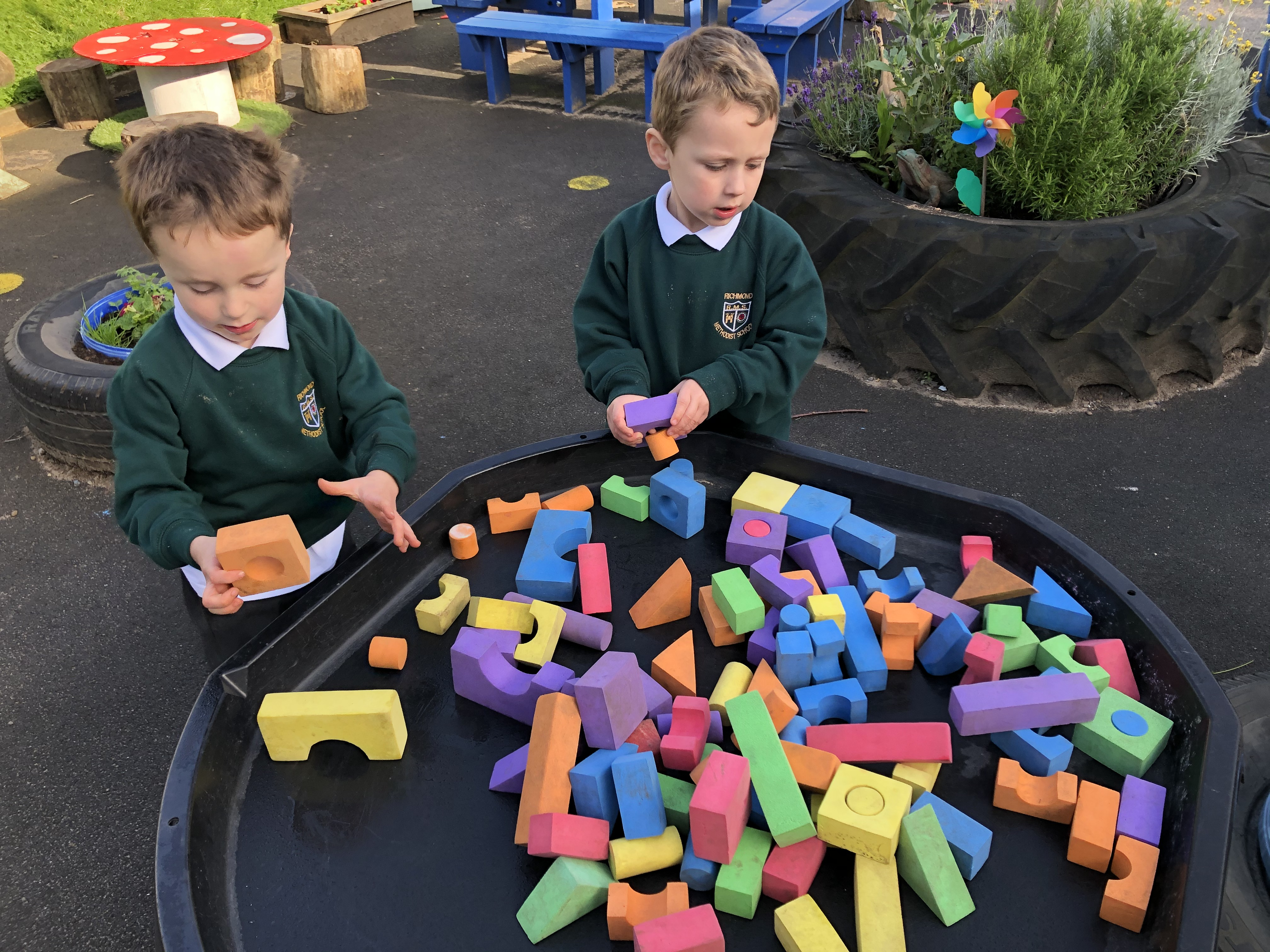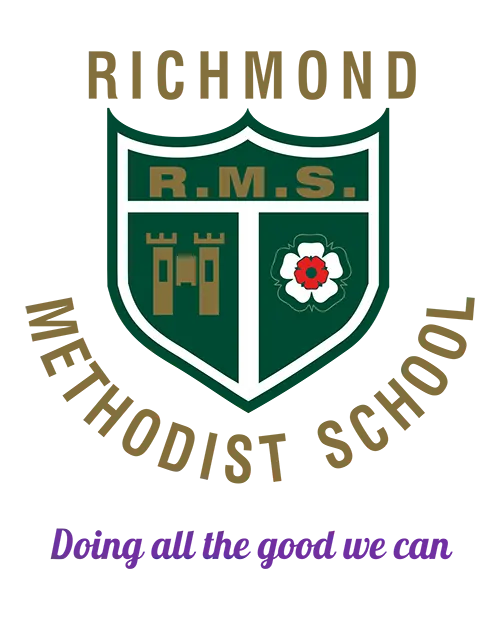Our Bespoke Nursery and Reception Provision
Please click here for a video of Ribblesdale Nursery
Please click here for a video of Swaledale Reception
We would love to welcome your child to our friendly and caring Foundation Stage! We are able to offer Nursery places for children from two years of age and a dedicated EYFS Wrap Around Care from 5:30pm to 6:00pm
Our Nursery classes are organised to reflect the children’s ranges of development as we believe each stage of your child’s education journey is distinct and needs to be purposefully planned for.
The EYFS department encompasses all of our Nursery and Reception classes and is currently situated within four exciting indoor classrooms, all with access to well-resourced outdoor classrooms. Our 2-year-old provision is in a purpose-built building and we call this Silverdale. Provision for our 3 olds is in the main school building and called Ribblesdale and our two Reception classes are called Swaledale and Malhamdale.
Throughout our bespoke provision, you will see our provision enabling the three characteristics of effective teaching and learning:
- playing and exploring – children investigate and experience things, and ‘have a go’
- active learning – children concentrate and keep on trying if they encounter difficulties, and enjoy achievements
- creating and thinking critically – children have and develop their own ideas, make links between ideas, and develop strategies for doing things
Our EYFS@RMS is planned and taught by both experienced teachers and dedicated EYFS Practitioners.
Our seven key features of effective practice encompass:
- The best for every child
- High-quality care
- The curriculum
- Pedagogy
- Assessment
- Self-regulation and executive function
- Partnership with parents
The children are organised into their classes for registration and for short Literacy, Mathematics and Phonics input sessions but in between these sessions the children choose their own learning environment inside or outside. For the majority of the day, the children are free to investigate their own lines of enquiry and learn through play with their friends.
Our planned curriculum meets the requirements of the Early Years Foundation Stage Statutory Framework and we use the children’s interests to engage and ignite curiosity. We then weave in the knowledge and skills we feel each child needs as their personalised next steps. When appropriate, we play alongside the children and ‘plan in the moment’ to enhance children’s learning so all children are enabled to meet their potential in all areas of their development.
Our Foundation Stage curriculum and provision reflects and provides opportunity for learning across the three prime areas of learning and also the four further specific areas, which help children to strengthen and apply the prime areas.
These are:
Communication and Language
Personal, Social and Emotional Development
Physical Development
Literacy
Mathematics
Understanding the World
Expressive Arts and Design
These areas span all of our EYFS curriculum and they are broken down into sequential, chronological ranges of development.
These are available to view in the following documents if you require further information:
They then culminate in Reception with the following. We call these the Early Learning Goals:
Communication and Language
Listening, Attention and Understanding ELG
Children at the expected level of development will:
• Listen attentively and respond to what they hear with relevant questions, comments and actions when being read to and during whole class discussions and small group interactions;
• Make comments about what they have heard and ask questions to clarify their understanding;
• Hold conversation when engaged in back-and-forth exchanges with their teacher and peers.
Speaking ELG
Children at the expected level of development will:
• Participate in small group, class and one-to-one discussions, offering their own ideas, using recently introduced vocabulary;
• Offer explanations for why things might happen, making use of recently introduced vocabulary from stories, non-fiction, rhymes and poems when appropriate;
• Express their ideas and feelings about their experiences using full sentences, including use of past, present, and future tenses and making use of conjunctions, with modelling and support from their teacher.
Personal, Social and Emotional Development
Self-Regulation ELG
Children at the expected level of development will:
• Show an understanding of their own feelings and those of others, and begin to regulate their behaviour accordingly;
• Set and work towards simple goals, being able to wait for what they want and control their immediate impulses when appropriate;
• Give focused attention to what the teacher says, responding appropriately even when engaged in activity, and show an ability to follow instructions involving several ideas or actions.
Managing Self ELG
Children at the expected level of development will:
• Be confident to try new activities and show independence, resilience and perseverance in the face of challenge;
• Explain the reasons for rules, know right from wrong and try to behave accordingly;
• Manage their own basic hygiene and personal needs, including dressing, going to the toilet, and understanding the importance of healthy food choices.
Building Relationships ELG
Children at the expected level of development will:
• Work and play cooperatively and take turns with others;
• Form positive attachments to adults and friendships with peers; • Show sensitivity to their own and to others’ needs.
Physical Development
Gross Motor Skills ELG
Children at the expected level of development will:
• Negotiate space and obstacles safely, with consideration for themselves and others;
• Demonstrate strength, balance and coordination when playing;
• Move energetically, such as running, jumping, dancing, hopping, skipping and climbing.
Fine Motor Skills ELG
Children at the expected level of development will:
• Hold a pencil effectively in preparation for fluent writing – using the tripod grip in almost all cases;
• Use a range of small tools, including scissors, paint brushes and cutlery;
• Begin to show accuracy and care when drawing.
Literacy
Comprehension ELG
Children at the expected level of development will:
• Demonstrate understanding of what has been read to them by retelling stories and narratives using their own words and recently introduced vocabulary;
• Anticipate – where appropriate – key events in stories;
• Use and understand recently introduced vocabulary during discussions about stories, non-fiction, rhymes and poems and during role-play.
Word Reading ELG
Children at the expected level of development will:
• Say a sound for each letter in the alphabet and at least 10 digraphs;
• Read words consistent with their phonic knowledge by sound-blending;
• Read aloud simple sentences and books that are consistent with their phonic knowledge, including some common exception words.
Writing ELG
Children at the expected level of development will:
• Write recognisable letters, most of which are correctly formed;
• Spell words by identifying sounds in them and representing the sounds with a letter or letters;
• Write simple phrases and sentences that can be read by others.
Mathematics
Number ELG
Children at the expected level of development will:
• Have a deep understanding of number to 10, including the composition of each number;
• Subitise (recognise quantities without counting) up to 5;
• Automatically recall (without reference to rhymes, counting or other aids) number bonds up to 5 (including subtraction facts) and some number bonds to 10, including double facts.
Numerical Patterns ELG
Children at the expected level of development will:
• Verbally count beyond 20, recognising the pattern of the counting system;
• Compare quantities up to 10 in different contexts, recognising when one quantity is greater than, less than or the same as the other quantity;
• Explore and represent patterns within numbers up to 10, including evens and odds, double facts and how quantities can be distributed equally.
Understanding the World
Past and Present ELG
Children at the expected level of development will:
• Talk about the lives of the people around them and their roles in society;
• Know some similarities and differences between things in the past and now, drawing on their experiences and what has been read in class;
• Understand the past through settings, characters and events encountered in books read in class and storytelling;
People Culture and Communities ELG
Children at the expected level of development will:
• Describe their immediate environment using knowledge from observation, discussion, stories, non-fiction texts, and maps;
• Know some similarities and differences between different religious and cultural communities in this country, drawing on their experiences and what has been read in class;
• Explain some similarities and differences between life in this country and life in other countries, drawing on knowledge from stories, non-fiction texts and – when appropriate – maps.
The Natural World ELG
Children at the expected level of development will:
• Explore the natural world around them, making observations and drawing pictures of animals and plants;
• Know some similarities and differences between the natural world around them and contrasting environments, drawing on their experiences and what has been read in class;
• Understand some important processes and changes in the natural world around them, including the seasons and changing states of matter.
Expressive Arts and Design
Creating with Materials ELG
Children at the expected level of development will:
• Safely use and explore a variety of materials, tools and techniques, experimenting with colour, design, texture, form, and function;
• Share their creations, explaining the process they have used;
• Make use of props and materials when role playing characters in narratives and stories.
Being Imaginative and Expressive ELG
Children at the expected level of development will:
• Invent, adapt and recount narratives and stories with peers and their teacher;
• Sing a range of well-known nursery rhymes and songs;
• Perform songs, rhymes, poems and stories with others, and – when appropriate try to move in time with music.
As the children leave our Reception classes, they are ready to begin Year 1.
Transitions
During June, we initiate transition activities with the families and children who are beginning Nursery or Foundation Stage in the coming September. These can be adapted on a individual basis for children joining us through the year and to reflect individual circumstance. It usually involves all or a combination of: ‘Door Step Hellos’ evening ‘Stay and Play’ sessions visiting the Nursery / Pre-school settings, inviting the settings to visit a New Class Practice – full morning session An ‘All about me!’ book to fill in over the summer and to share in September with our new classes.

